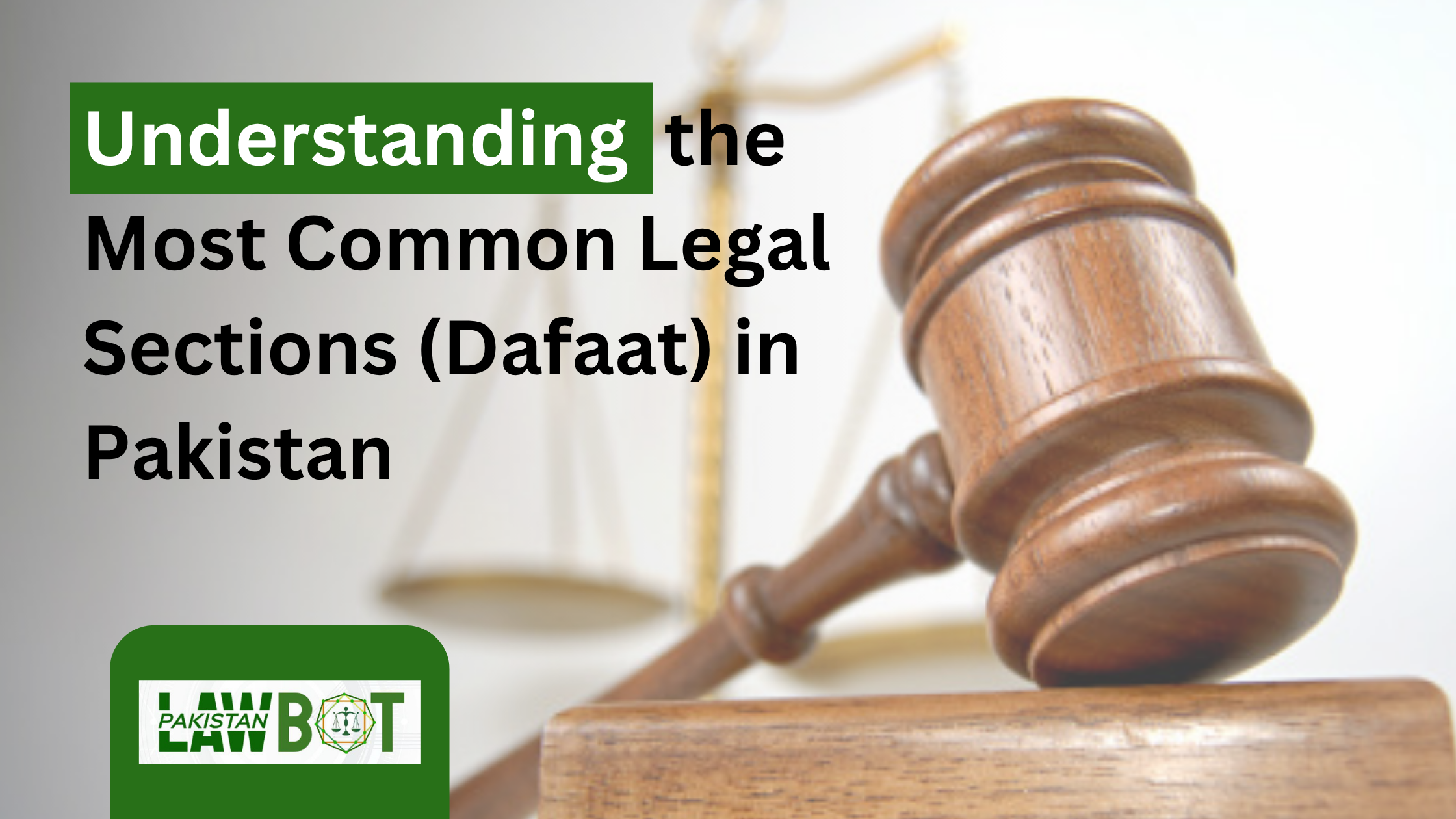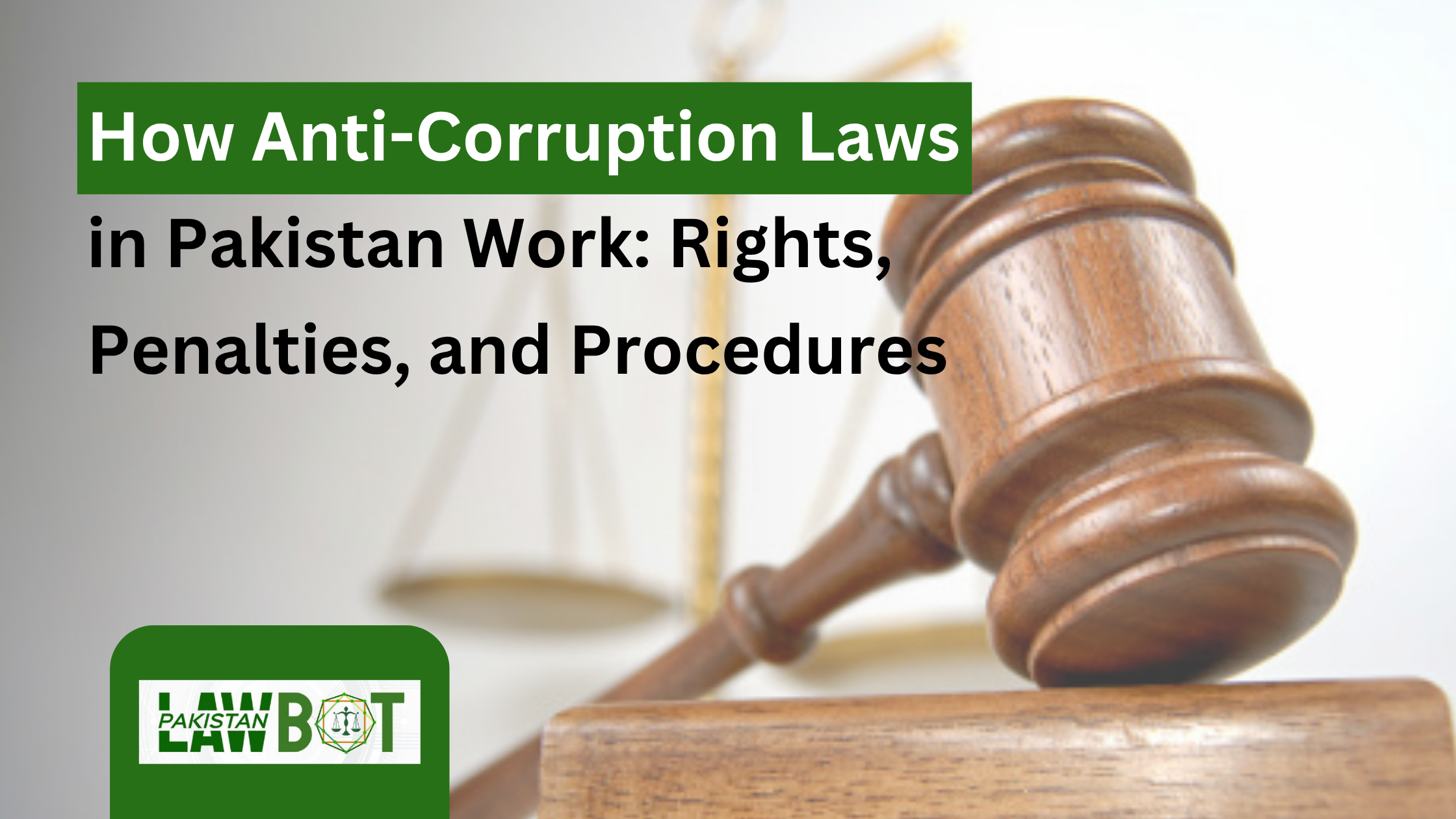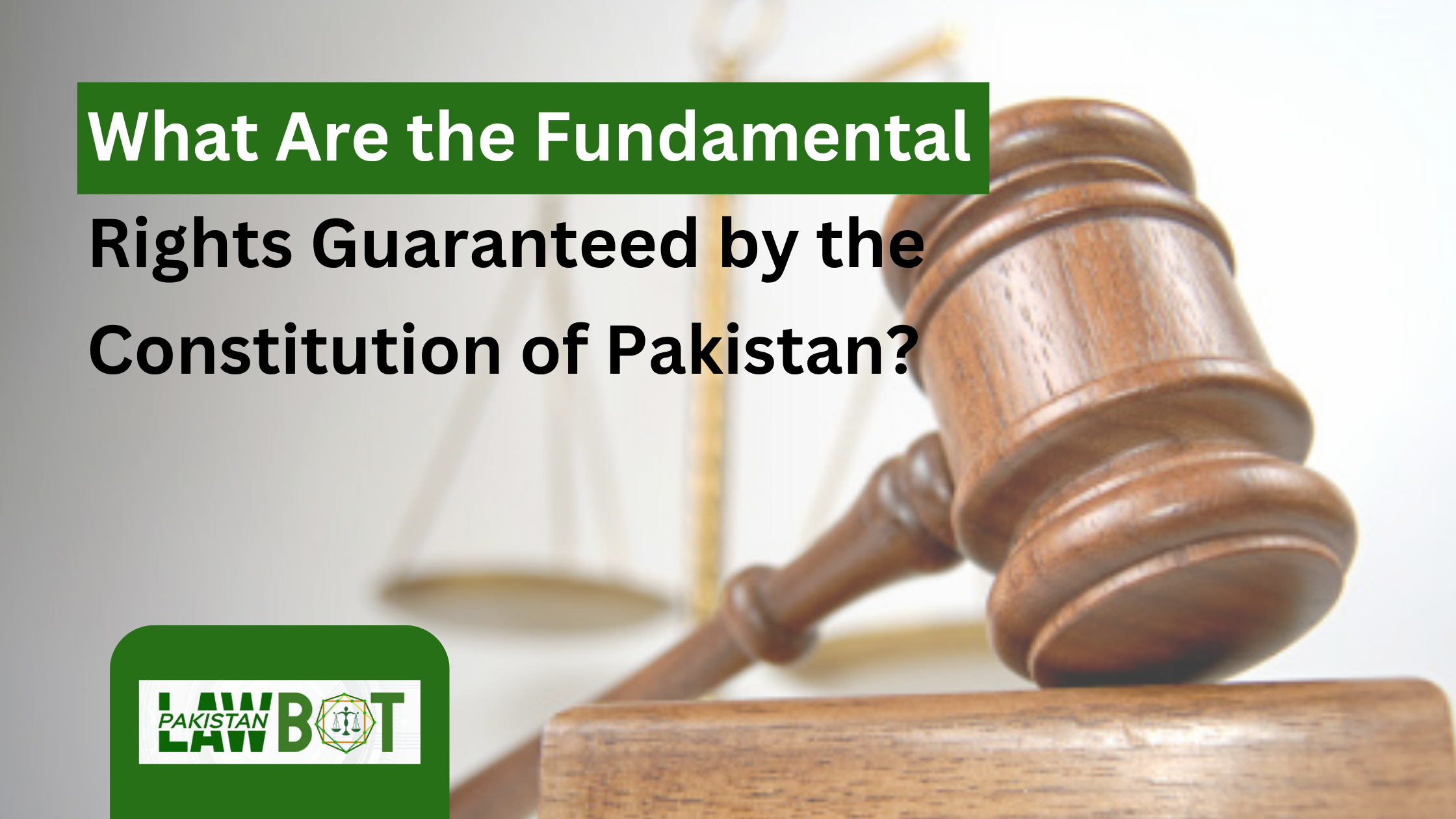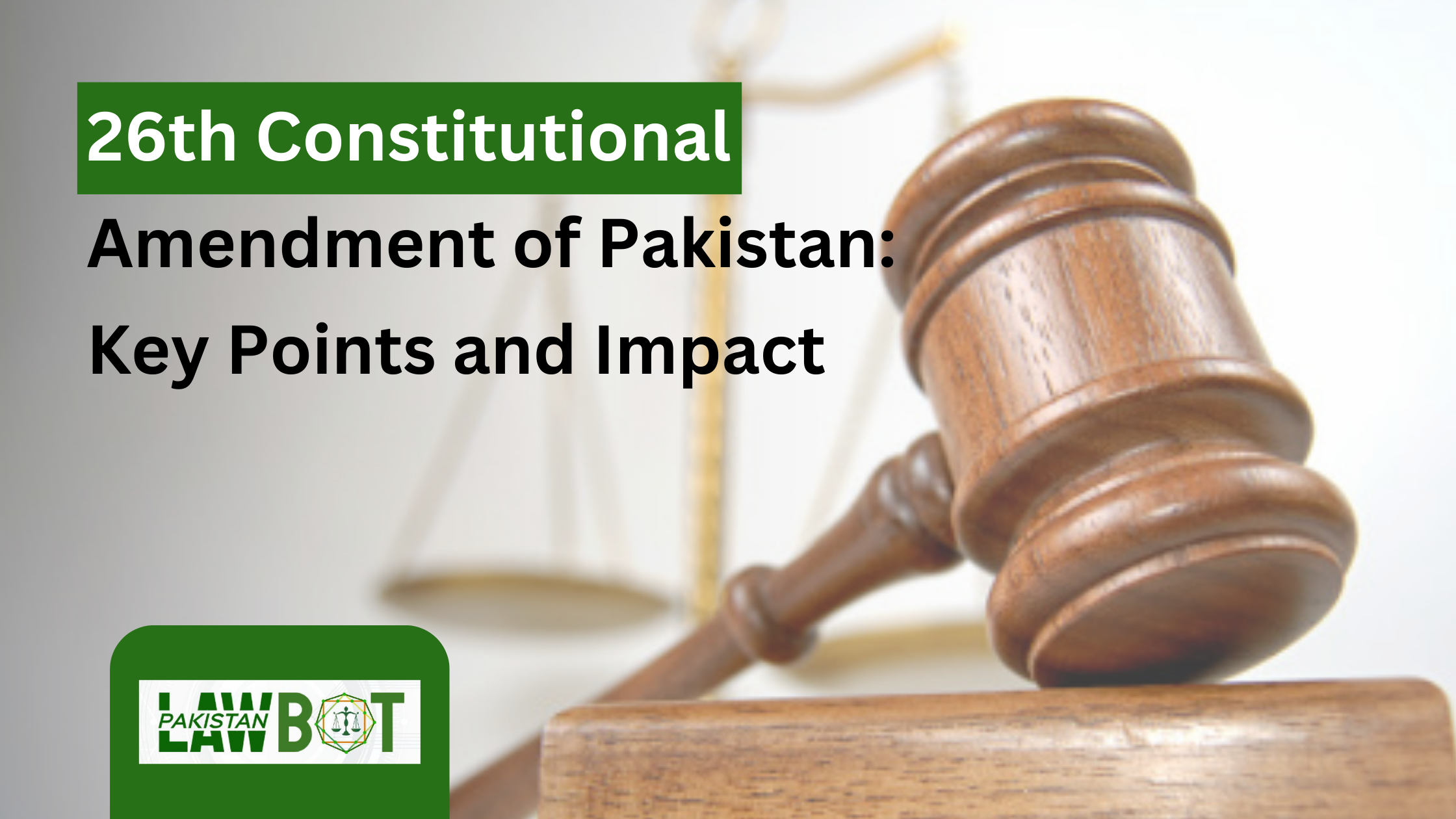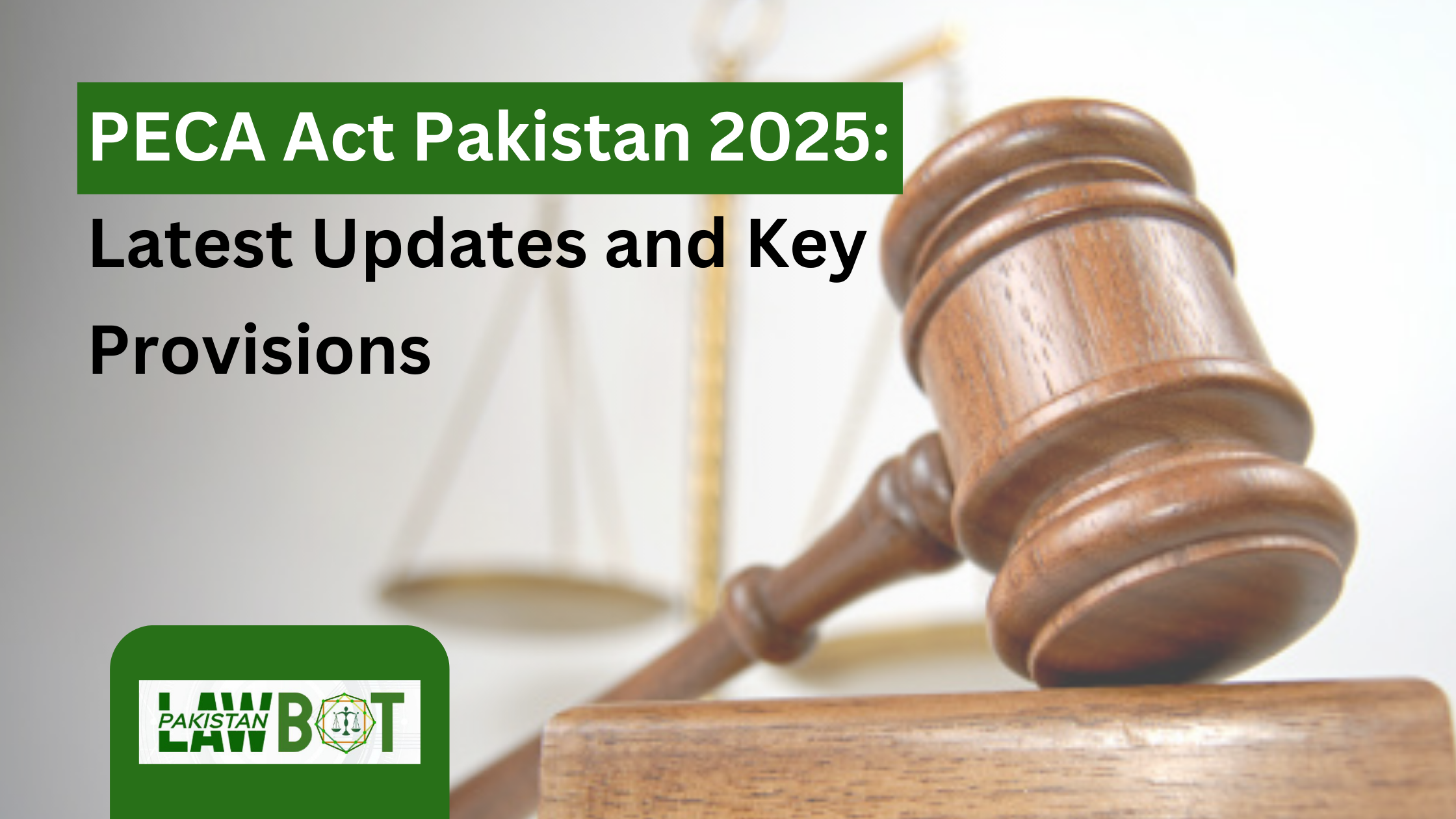The legal landscape of Pakistan is deeply rooted in a combination of colonial-era laws, Islamic jurisprudence, and constitutional principles. One of the most essential aspects of understanding Pakistani law is becoming familiar with the commonly applied legal sections, or “dafaat,” of various laws, especially the Pakistan Penal Code (PPC), Code of Criminal Procedure (CrPC), and others. Whether you’re a law student, a professional, or an ordinary citizen, having a basic understanding of these legal provisions can help you better navigate the justice system.
What Are Dafaat (Legal Sections)?
In Pakistani law, the term “dafa” (plural: dafaat) refers to individual sections of legal statutes. Each section outlines a specific legal rule, offense, or procedural guideline. These data are often cited in police reports (FIRs), court judgments, and legal notices.
Let’s explore the most frequently applied dafaat in Pakistan that are crucial in both criminal and civil legal matters.
Common Dafaat in the Pakistan Penal Code (PPC)
The Pakistan Penal Code, 1860, is the primary criminal code of Pakistan. It contains numerous sections dealing with crimes and penalties.
Dafa 302 – Murder
One of the most serious and well-known legal sections, Dafa 302, deals with intentional murder. A person found guilty under this section can face the death penalty, life imprisonment, or payment of diyat (compensation) to the victim’s family.
Dafa 376 – Rape
Dafa 376 deals with rape and sexual assault, and the punishment can range from 10 years to death. The law has evolved to provide stronger protection to victims and harsher punishment for offenders.
Dafa 377 – Unnatural Offenses
This section criminalizes what is referred to in legal terms as “unnatural offenses”, including homosexuality, with punishment ranging from 2 years to life imprisonment. It has been a controversial law due to human rights concerns.
Dafa 324 – Attempt to Murder
Dafa 324 applies when someone tries to kill another person but fails. It’s treated seriously and carries imprisonment that may extend to ten years, and in aggravated cases, up to life imprisonment.
Dafa 420 – Cheating and Fraud
One of the most common white-collar crime sections, Dafa 420, deals with cheating and dishonestly inducing the delivery of property. It’s widely used in financial crime cases and carries a punishment of up to seven years’ imprisonment and a fine.
Dafa 392 – Robbery
This section deals with robbery. If violence is used or attempted while committing theft, it falls under Dafa 392. The punishment is rigorous imprisonment of up to 10 years.
Dafa 498-A – Cruelty Against Women
Introduced to protect women from domestic violence and cruelty, this section makes it illegal for husbands or in-laws to harass, torture, or abuse women in a domestic setting.
Common Dafaat in the Code of Criminal Procedure (CrPC)
The CrPC is the procedural law that outlines how criminal trials and investigations should be conducted.
Dafa 154 – First Information Report (FIR)
Section 154 of the CrPC describes the procedure for registering a criminal complaint, commonly known as an FIR. It is the first step in initiating a criminal case.
Dafa 161 – Statement to Police
Under this section, police can record the statements of witnesses during an investigation. It’s not admissible as evidence in court unless it leads to further investigation.
Dafa 164 – Confession Before Magistrate
A very sensitive section, Dafa 164, allows a magistrate to record a confession of an accused or a statement of a witness voluntarily. It carries strong evidentiary value if properly recorded.Datat Related to Cybercrime (PECA 2016)
With the rise in digital activity, the Prevention of Electronic Crimes Act (PECA) 2016 introduced new sections to address cybercrime.
Section 20 – Defamation via Internet
This section deals with online defamation, including sharing false or damaging information about a person via social media or other electronic means.
Section 21 – Cyber Harassment
This provision criminalizes cyberbullying, stalking, and harassment, particularly against women and children. Punishment includes imprisonment and a fine.
Section 24 – Spoofing
Using someone else’s digital identity or creating fake accounts falls under spoofing, punishable under this section with up to 3 years of imprisonment.
Common Dafaat in Civil and Family Matters
While criminal data is more widely known, certain civil and family-related legal sections are also commonly used.
Family Courts Act – Sections on Custody and Divorce
This act governs matters like child custody, maintenance, and divorce proceedings. These cases are heard in Family Courts under specified provisions of the Family Courts Act.
Dafa 9 (West Pakistan Family Courts Act)—Custody of Child
This section allows a parent or guardian to claim custody of a minor child in a family dispute. The court decides based on the welfare of the child.
Muslim Family Laws Ordinance 1961 – Dafa 7 (Talaq/Divorce)
This section outlines the procedure for registration of divorce (Talaq), including mandatory notice to the Union Council and a 90-day reconciliation period.
Other Frequently Encountered Dafaat
Dafa 107 – Preventive Action
This section allows the executive magistrate to issue preventive orders against individuals suspected of disturbing peace and public order.
Dafa 151 – Arrest to Prevent Offense
Police can arrest a person without a warrant under this section if it is believed that the person is about to commit a cognizable offense.
Importance of Knowing Legal Sections in Pakistan
Understanding these legal sections is not just useful for lawyers or law enforcement—it’s valuable for every Pakistani citizen. Here’s why:
Protection of Rights
Knowing your legal rights helps in protecting yourself from exploitation or wrongful accusations.
Transparency in Legal Proceedings
Understanding the details mentioned in your FIR or court case makes you better prepared to handle the legal process.
Avoiding Legal Trouble
Being aware of criminal sections can also help in ensuring that you don’t unintentionally violate laws due to ignorance.
Role of Pakistan Law Bot in Simplifying Legal Information
If you ever come across complex legal terms like Dafa 302 or Dafa 420 and don’t know what they mean, tools like Pakistan Law Bot can help. This AI-powered platform makes it easier to understand Pakistani laws in simple English, enabling users to access legal definitions, rights, and case procedures without the need for legal training.
Final Thoughts
Pakistan’s legal system may seem complicated, but having a basic knowledge of commonly used dafaat (legal sections) can empower you to make informed decisions, defend your rights, and understand the justice process. From criminal charges like murder (Dafa 302) to civil rights such as custody (Dafa 9) and cybercrime (PECA sections), each dafa plays a crucial role in maintaining order in society.
For further clarity or legal assistance, always consult with a qualified lawyer or use reliable legal platforms.

